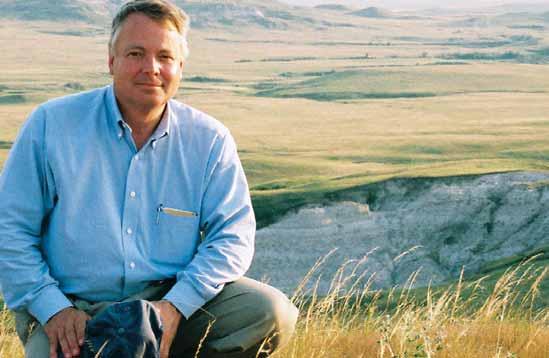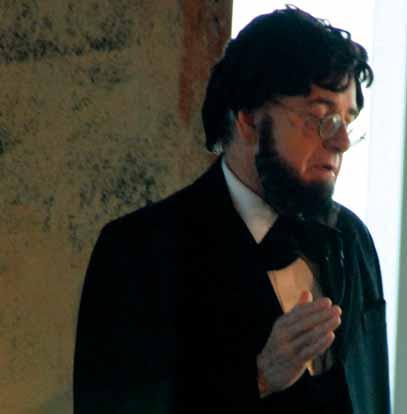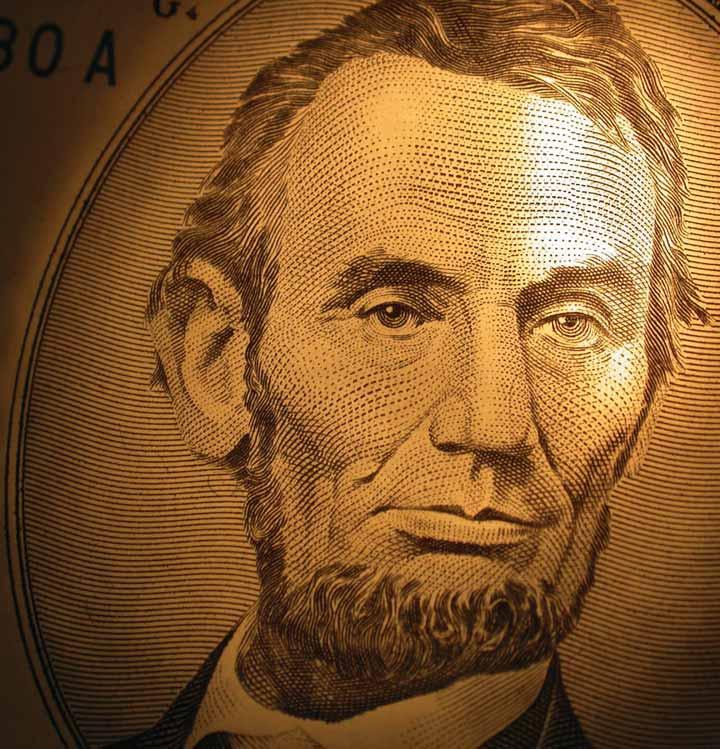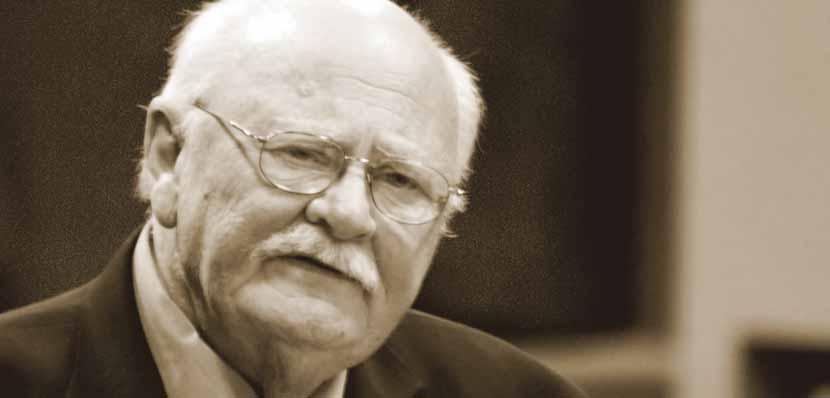[chautauqua section]
Carrol D. Peterson (right) presents Walt Whitman, the great American poet at the Lincoln Chautauqua. Peterson was a Phi Beta Kappa scholar at the University of Arkansas, where he earned his M.A. and Ph.D. degrees in English. He taught at Doane College in Crete, Nebraska, from 1964 to 2000, has studied at Yale, and served as a visiting professor of English at Kwassui University in Japan.
Walt Whitman, America’s Poet (1819-1892) By Carrol Peterson
No poem
has been more memorized by American school children than Walt Whitman’s, “Oh Captain! My Captain!” No poet has set himself more determinedly to become a legend than Whitman. No past American writer continues to receive more critical attention than “the good gray poet.” And no poet from our country’s past seems more relevant to America today than Whitman. Whitman personally wanted to achieve, first of all, a new poetry for the new world. But he also felt that the nation itself had a purpose to become the exemplary democracy for the world. He believed that America was ordained to spread the gospel of democracy and freedom through the world, a belief that led to war with Mexico in Whitman’s time—a belief that has led to many of America’s continuing international involvements. Whitman is a poet, but he is far from non-political. Whitman and his father accepted Thomas Paine’s interpretation of history—that the 10
establishment of the American republic was a rejection of the feudal past. This view applied not just to politics, but to literature as well. Though Whitman admired Shakespeare immensely, he felt that even his writings showed some of the faults of medieval feudalism. This view of history explains Whitman’s enthusiasm for progress. His account of his pleasure in riding on trains and his assertion that the poetic muse is to be found “among the kitchenware” (in “Song of the Exposition”) are distinctive. Politics, poetry, and progress are connected in Whitman. His long poem, “Song of Myself,” is not just a celebration of one life, though it is selfrevelatory. Underlying Whitman’s political faith in democracy and his poetic practice is his endless delight in the variety of life. Whitman is the rhapsodist of variety and of whatever is individual. He emphasizes America’s potential—not Tocqueville’s potential for a tyranny of the majority, but the









